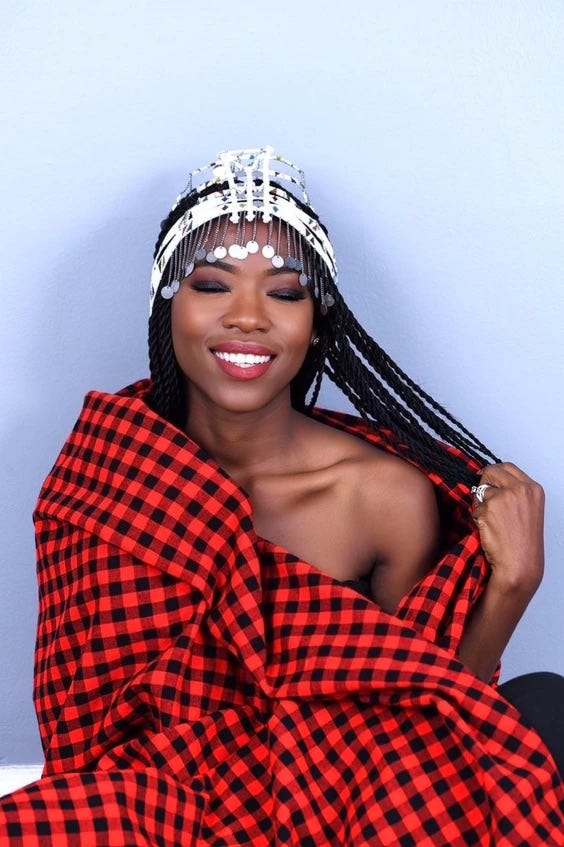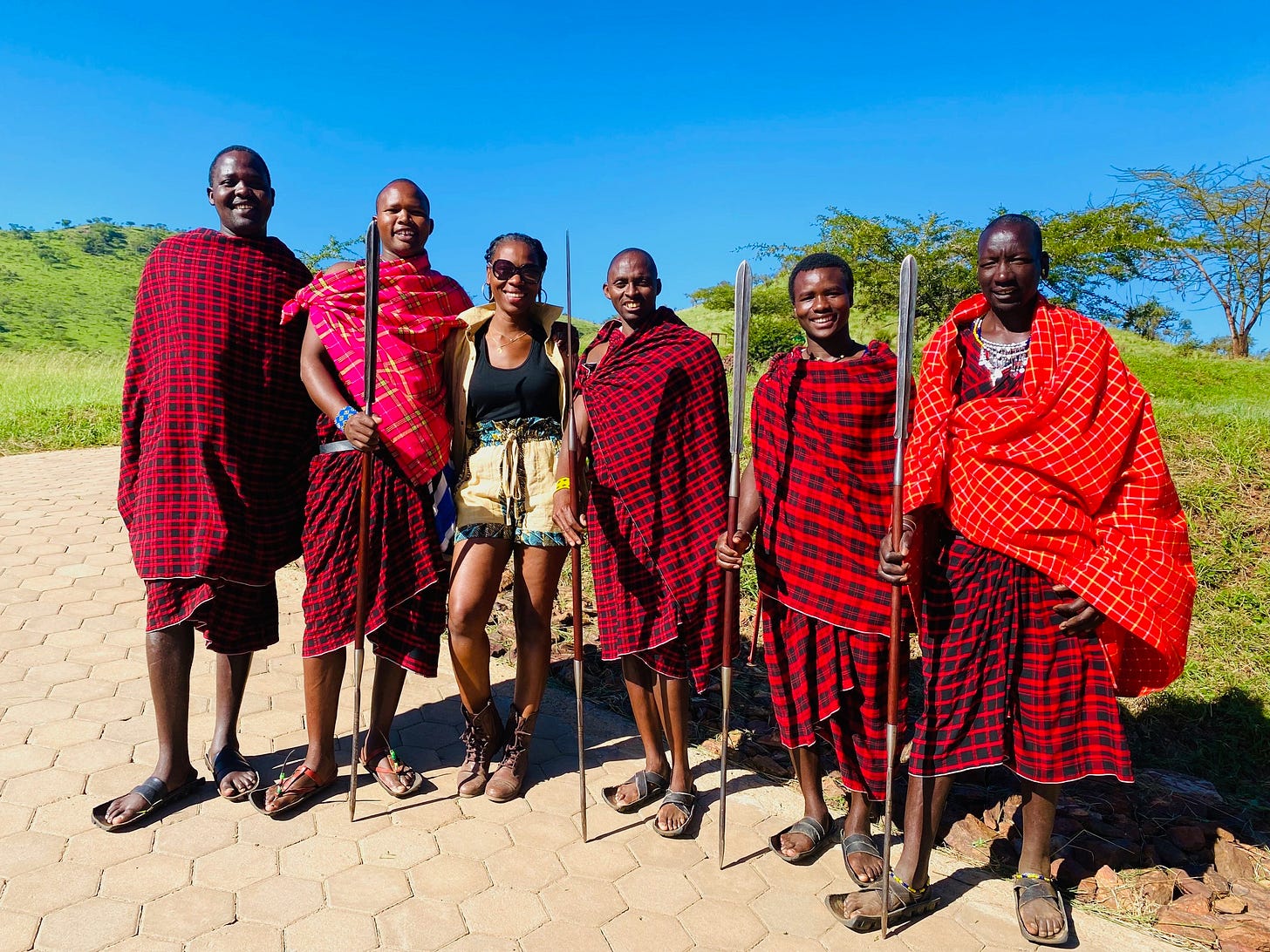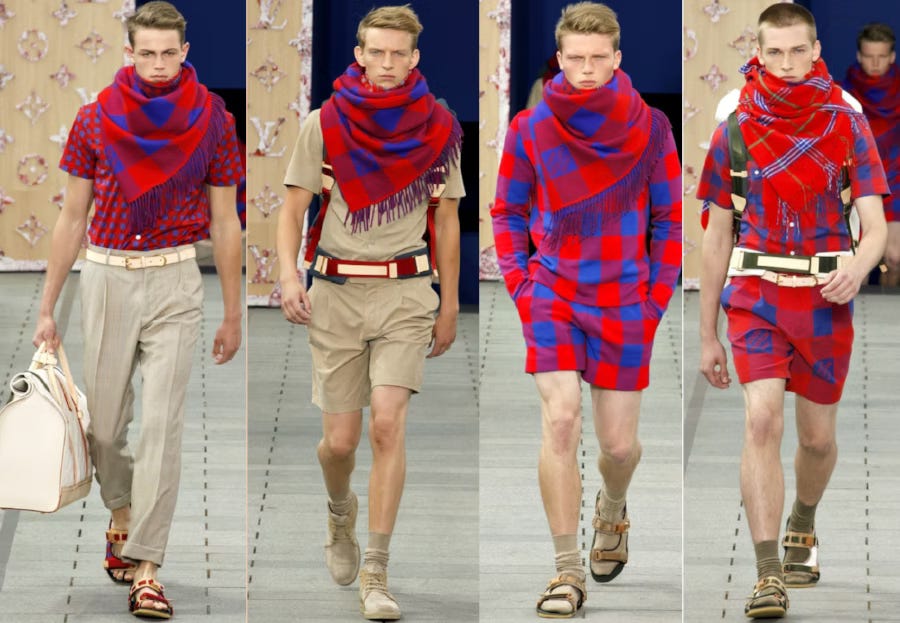“Can I Wear This?”
Drawing the Line Between Appreciation and Appropriation in a Globalized World.
Let’s talk about cultural appropriation—a topic that is as complex and sensitive as it is necessary. For some, it evokes discomfort. For others, it sparks defensiveness. But for many, especially those from marginalized communities, it brings up real harm, deep frustration, and historical pain.
As the founder of ILAVA, an African-inspired boutique with a strong social mission, I encounter this topic often. ILAVA attracts women from all walks of life—different races, ethnicities, and backgrounds. One of the most frequent comments I hear from white women and other non-Black women is:
“I love the style, the colors, and the practicality of the line—and most of all, I LOVE the social mission. But I’m afraid that if I wear this, I’ll be accused of cultural appropriation.”
Because I hear this so often, I feel a deep responsibility to address it honestly and respectfully.
For the sake of clarity, let’s start with a working definition.
Culture: the characteristics and knowledge of a particular group of people, encompassing language, religion, cuisine, social habits, music, and the arts. (Merriam-Webster)
Cultural Appropriation: the adoption of elements of one culture by members of another culture—particularly when members of a dominant culture adopt elements from a marginalized group without permission, acknowledgment, or compensation. (Oxford Reference)
Here is my take, life is richer when we share cultures. If we confined ourselves to our own cultural expressions, the world would feel small and dull. We embrace other languages, display art from across the globe, and immerse ourselves in music from every corner of the world.
As a Tanzanian woman, I enjoy engaging with diverse cuisines, music, fashion and other expressions. I cannot fathom being restricted to only experiencing my native culture. The world is vast, and its beauty lies in its diversity. But—and this is a big but—clothing tends to be the center for culture appropriation controversy.
Just for a moment, consider this: no one criticizes white person for enjoying Ethiopian food at a local restaurant. But if those same individuals wear Ethiopian attire, social media might explode with accusations. Why? Why is it acceptable to eat the food but not wear the clothes? Furthermore, why is it acceptable for non-Japanese people to eat sushi, but not to wear a kimono?
From personal experience, I can share that in Tanzania, we have over 120 tribes and dialects, each with its own distinct culture. The most popular and internationally recognized tribe is the Maasai. I am not Maasai—my mother is Nyamwezi, and my father is Hehe. Still, I deeply admire the bold beauty of Maasai jewelry and textiles. However, there are sacred ceremonial pieces I would never wear—no matter how stunning—out of respect for Maasai traditions. Some items are not meant for fashion. Even as an African woman, I must be mindful of how I engage with cultures beyond my own. Cultural appropriation is not limited to people of European descent.
And let’s be honest: the concept of cultural appropriation didn’t emerge out of vacuum. It’s rooted in a long history of exploitation—where dominant cultures have stolen, commodified, and profited from marginalized traditions without recognition or restitution. For example, braided hair is one of the more sensitive topics.
When Black women wear braids in corporate settings, they are often judged as unprofessional. Yet when the same hairstyle is worn by white women, it’s seen as exotic and chic. So, the pushback is not always just about appropriation—it’s also about stopping the pattern of punishing one group while praising another for the very same expression, often without giving credit where it’s due.
Take, for example, the global hit song “The Lion Sleeps Tonight.” It was originally composed in 1939 by South African musician Solomon Linda, who titled it Mbube. Yet, it only became a major hit when recorded by the American group The Tokens in the 1960s. While Western artists made millions, Linda died in poverty, unaware of his rights and now there is lawsuit between his descents and Disney. P.S. There was an entire documentary on Netflix, titled ReMastered: The Lion’s Share, dedicated to this lawsuit.
Another example is fashion. In 2011, Louis Vuitton debuted a collection using traditional Maasai fabric. The fashion world celebrated it. The Maasai people did not. With 80% of their population living below the poverty line, imagine what fair compensation could have meant for them. Instead, their culture was used for profit—without benefit or consent.
So, what’s the takeaway?
We must acknowledge, respect, and compensate the cultures we are inspired by.
As a designer, I am committed to ensuring that ILAVA's collections are inspired by—not exploitative of—African traditions. I research deeply. I ensure that no item in our line carries sacred or ceremonial significance.
My hope is that when a woman wears ILAVA, it sparks a conversation:
“I love your outfit! Where did you get it?”
“It’s ILAVA—it’s inspired by Tanzania. Let me tell you more...”
That’s the power of fashion rooted in purpose.
But we must also ask: How do we engage with other cultures without crossing the line into appropriation?
Here’s what I tell non-Black women who shop ILAVA. If you can answer YES to the following questions, then happy shopping!
Do you know where it comes from?
Do you understand this isn’t a costume—it’s a lifestyle?
Do you want to shop with purpose?
Are you ready to be part of a global community uplifting women and girls in East Africa?
Can you rock it with style and confident?
If so, then welcome to the ILAVA family.
I know not everyone will agree with me. And that’s okay. The beauty of humanity lies in our ability to disagree with love and respect.
So, let’s celebrate and honor one another’s cultures—with intention, acknowledgment, and compensation. Let’s educate ourselves on the history, the pain, and the joy woven into the traditions we admire. Because when we do that, we’re not appropriating—we’re participating in something much deeper. Something rooted in respect.
I’d love to hear your thoughts on this—feel free to leave me a comment.






